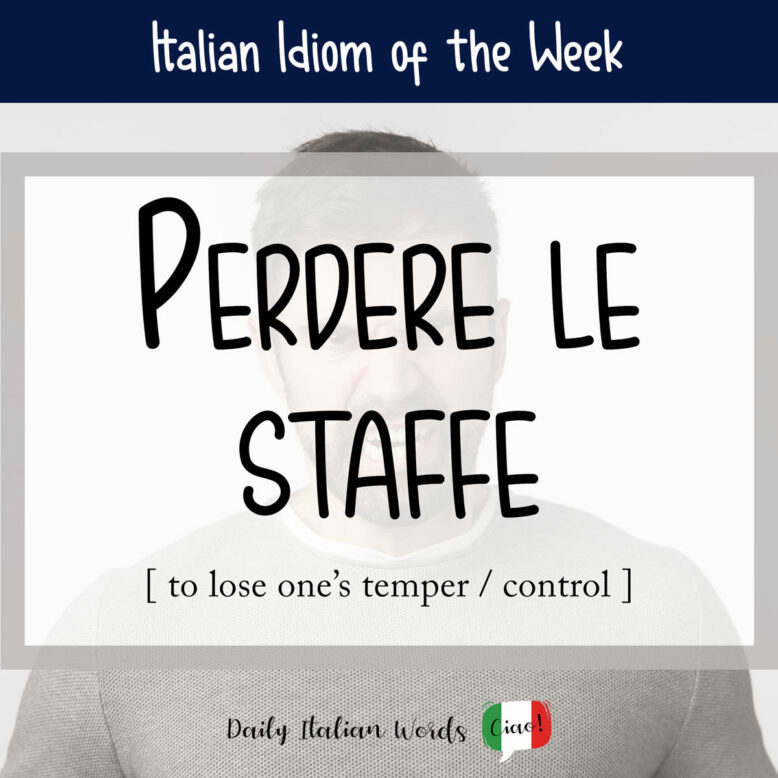The other day at the park, a man allowed his leash-less dog to bound up to my three-year-old, and had the nerve to tell me to keep an eye on my child (who was holding his grandmother’s hand at the time). Did I lose my cool? No, but I was *this* close!
When you reach a level of anger where you can no longer contain yourself, you can use the Italian phrase perdere le staffe to describe the experience. This expression means “to lose one’s temper / control.”
perdere le staffe
to lose one’s temper / control

Some other possible translations include:
- to fly off the handle
- to blow a fuse / your top
- to hit the roof
- to lose your cool
Perdere is a verb that usually translates as “to lose” but may also mean “to miss” or “to waste,” as you can see from the following examples:
- perdere il portafoglio = to lose one’s wallet
- perdere peso = to lose weight
- perdere i capelli = to lose one’s hair
- perdere il sonno = to lose sleep
- perdere interesse = to lose interest
- perdere una scommessa = to lose a bet
- perdere il treno = to miss the train
- perdere tempo = to waste time
But what about le staffe? Le staffe refer to the stirrups that riders use when on horseback. Without these stirrups, a rider could lose stability on a horse. This imagery of losing stability in the context of riding draws a metaphorical comparison to the idea of losing control over one’s emotions.
Dopo aver sentito le parole di Luca, ho quasi perso le staffe!
After hearing Luca’s words, I almost lost my temper!

A similar idiom is perdere la bussola, with bussola meaning compass or bearings. It draws a parallel between the notion of losing one’s way in a physical sense and losing control in an emotional context. However, keep in mind that this idiom can also mean “to lose one’s bearings” in a more literal sense.

Heather Broster is a graduate with honours in linguistics from the University of Western Ontario. She is an aspiring polyglot, proficient in English and Italian, as well as Japanese, Welsh, and French to varying degrees of fluency. Originally from Toronto, Heather has resided in various countries, notably Italy for a period of six years. Her primary focus lies in the fields of language acquisition, education, and bilingual instruction.


